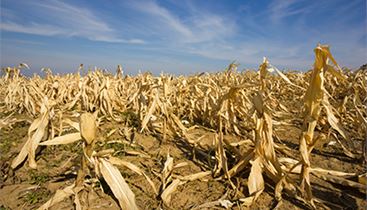Shopping cart Close cart
| SEK SEK EUR EUR |
| Discount | - EUR | - SEK |
| Sum | EUR | SEK |
| Shipping | EUR | SEK |
| Vat | EUR | SEK |
| Total | EUR | SEK |
Shopping cart Close cart
| SEK SEK EUR EUR |
| Discount | - EUR | - SEK |
| Sum | EUR | SEK |
| Shipping | EUR | SEK |
| Vat | EUR | SEK |
| Total | EUR | SEK |
In February 2022, SIS second EU twinning project began. The project is implemented in collaboration with Swedac, Sweden National Board of Trade (Kommerskollegium) and five German institutions. The aim of the project is to support the development of the Namibian Standard Institution (NSI). The mandate of NSI is broad and include trade related functions, standard development, certification, testing and metrology. To be able to address issues within all areas the implementing consortium had to include all the eight partners.
SIS and the German standard institute DIN will support the formulation of a National Standardisation Strategy and share knowledge and experience in the field of standard development, training and sales. Approximately, 10 SIS staff members will participate in the project.
This 18 months EU Twinning project was implemented by Germany as lead and Sweden and Spain as junior partners. The aim of the project was to support the Azerbaijan Standardisation Institute, AZSTAND, in their restructuring process. The project began in November 2020 after a few months of delay due to Covid-19. The three implementing countries had a shared responsibility to implement activities in three components. The first component focused on the legal frameworks and institutional set-up. The second looked at improving the standardization process, communication and digitalisation for the organisation. The third component introduced new financial models and looked at the development of new products and services to increase AZSTAND’s revenue.
The project in Bolivia focused on building institutional capacity of Bolivia’s standardization organization IBNORCA. It contributed to develop, adopt and promote the use of standards related to improved water quality in Bolivia.
Some of the results include; full membership of ISO; active participation in several ISO technical committees; sales of standards online; an active mirror committee in the water sector; adoption of 20 standards related to waste water treatment; development of online course material and pilot implementation of water standards in several companies.
The overall aim of the project was to harmonize the quality infrastructure between the Agadir countries with three main pillars:
1. Harmonization of mandatory requirements and trade regulations (implemented by the National Board of Trade)
2. Harmonization of voluntary standards (implemented by SIS)
3. Harmonization of accreditation systems (implemented by Swedac).
SIS worked closely with the National Standards Bodies and other stakeholders in the region to improve the systems and structures necessary for harmonization of voluntary standards. The process also included reviewing structures of the European standardization system (CEN/CENELEC) as well as the regional standardization organization (AIDMO) and the Agadir Technical Unit (ATU).
All National Standard Bodies in the fifthteen member states of ECOWAS were involved in the project. They focused on two standardization processes that were ongoing at the time (ISO/TC 34 on Food Products and ISO/TC 59 on Construction) as these sectors are of specific value and relevance to the region. Public and private sector representatives were involved in the standardization process.
The project aimed to build capacity of NSBs in the EAC region to develop and influence international standards. The project was implemented in close cooperation with the East African Community Secretariat. Other participants in the project represented companies, institutes, universities, governmental bodies and NGOs from the five member states of EAC. The focus areas were:
This project ran parallel to the project in the EAC region and had the same objective and components. It focused on enhancing the capacity of National Standard Bodies in standard setting and increasing the involvement of private and public sectors in the process. The other part of the project was standard implementation by existing or potential exporters. Three standards were used, ISO 13065 on sustainability criteria for bioenergy, ISO/TS 14067 on carbon footprint of products and ISO 14001 on environmental management.
SIS supported national standardisation organisations in the Middle East & North Africa (MENA) region to set international standards by organising workshops, pre-seminars before ISO meetings and facilitating participation in ISO technical committee (TC) and working group (WG) meetings. The standard used was ISO 14067 on Carbon Footprint of Products. Participants in the project represented companies, institutes, universities, governmental bodies and NGOs from countries in the region.

Capacity development in standardization and implementation of water standards in Bolivia